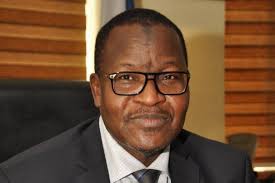The Organisation of Petroleum Exporting Countries (OPEC) agreed yesterday to pump additional one million barrels per day crude oil into the market to crash the price of oil which hovers around $74.47 bpd now.
The decision, which stakeholders say will also prevent supply shortage, is projected to affect economic outlook in Nigeria if the price drops below $51 bpd benchmarked in the 2018 budget or if the country is unable to boost its oil production, which has been benchmarked around 2.3 million bpd in the budget.
Stakeholders said the situation might affect implementation of the 2018 budget and slow down recovery of the nation’s economy, which is currently rebounding from recession.
Though OPEC did not disclose how the additional supply would be shared as at the time this report was filed, President/Chairman of Council, Chartered Institute of Bankers of Nigeria, who is also the Dean, College of Postgraduate Studies, Caleb University, Segun Ajibola said the prevailing situation at the international market could affect the country economy, considering the over dependence on revenue from crude oil. “This may post a major challenge to us as a country because our economy still revolves around oil. Oil and gas sector was the major contributor if you look at the improvement in the economic indices that has taken us,” Ajibola said.
Chairman/CEO of International Energy Services (IES) Ltd, Diran Fawibe told The Guardian that the decision to increase production in the face of growing shale production in the US would create a challenge for Nigeria, which is currently struggling to sell its crude due to competition from the US. Fawibe who urged the federal government to ensure that peace is maintained in the Niger Delta region to allow increase in oil production.




